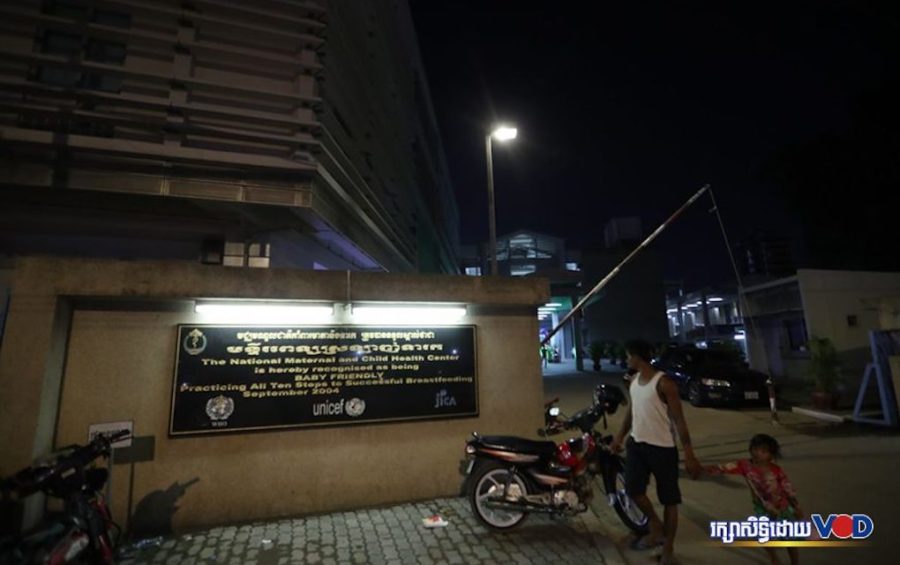Sophea Virak says he rushed to tell doctors when he noticed his wife of two years was barely breathing around 4 a.m. on Friday. The night before the couple lost their child during an induced labor.
“She was almost unable to breathe but the doctors still ignored me. And I kept on telling them that my wife was not breathing,” Virak told VOD. “Then they got up slowly to come have a look. They weren’t in a hurry. They walked to wake up another person.”
Less than an hour later, Virak’s wife, Chhin Sochea, who had arrived to the hospital seven-months pregnant, was dead.
Virak is now demanding answers from the National Maternal and Child Health Center, claiming it failed to pay proper attention to his wife’s condition.
Tung Rathavy, the center’s director, declined to comment on the case.
“I want justice for my wife,” Virak said. “The state pays their salary and they in turn just go to sleep.”
Virak said his wife was deemed healthy during regular checkups at a private clinic during the pregnancy until the seventh month, when she suffered minor bleeding.
The clinic assessed her as suffering from anemia, and the family moved Sochea to the National Maternal and Child Health Center, a state hospital that has received funding from the Japanese government, on Oct. 7.
The center diagnosed Sochea’s condition as serious and likely requiring a premature birth, according to Virak.
Doctors induced the birth on the evening of Oct. 10 in an attempt to save the mother. The baby, which would have been the couple’s first child, did not survive.
Early on Oct. 11, Sochea was convulsing, Virak said. Medical staff held her down to the bed and gave her three injections, telling the family that she would soon be better, he recalled.
But she got weaker and weaker over about half an hour, and told Virak she was struggling to breathe.
When doctors finally responded to Virak’s plea for help, Sochea was rushed into intensive care. After 40 minutes to an hour, doctors came out to inform the family that she was dead.
“It is very painful,” Virak said.
Sochea’s death certificate listed her official cause of death as a viral infection, he said.
But for Virak, that was not a satisfactory explanation. He said he would file a complaint against staff at the hospital in the hope of getting answers.
Virak said all he had received was the death certificate and an invoice.
He requested more detailed information about his wife’s cause of death from hospital staff, who told him he would need to file a formal complaint to the Health Ministry in order to be given that documentation.
Ministry spokesman Ly Sovann said he had no details of the case, but the ministry would take action if any wrongdoing was uncovered, including suspending doctors or revoking their licences.
“One can file a complaint to the Health Ministry, or one can hire a lawyer,” Sovann said. “One cannot just spread [claims].”
“If he is not satisfied, he can take legal action, but don’t just leave it as rumor,” he added.
Cambodia’s maternal mortality rate was about 160 deaths per 100,000 live births in 2017, down from 248 in 2010, according to the World Health Organization.
In 2017, the maternal mortality rate averaged 211 deaths per 100,000 births globally. That year, Thailand reported 37 maternal deaths; Vietnam, 43; Laos, 185; and Myanmar, 250.
(Translated and edited from the original article on VOD Khmer)













